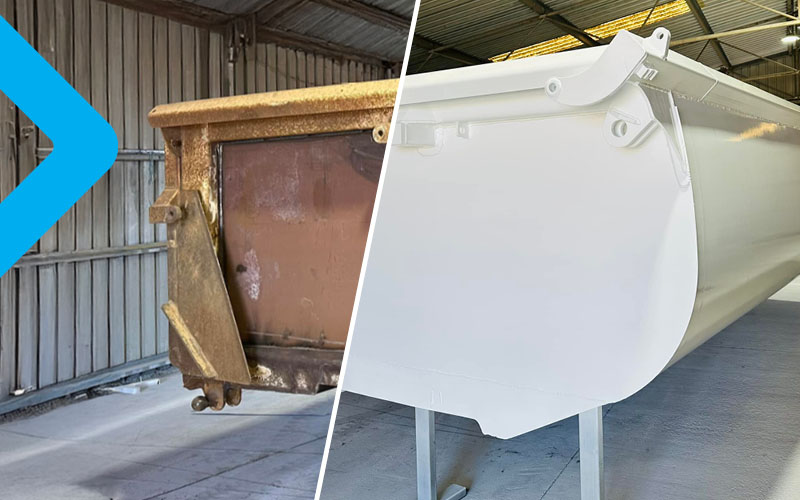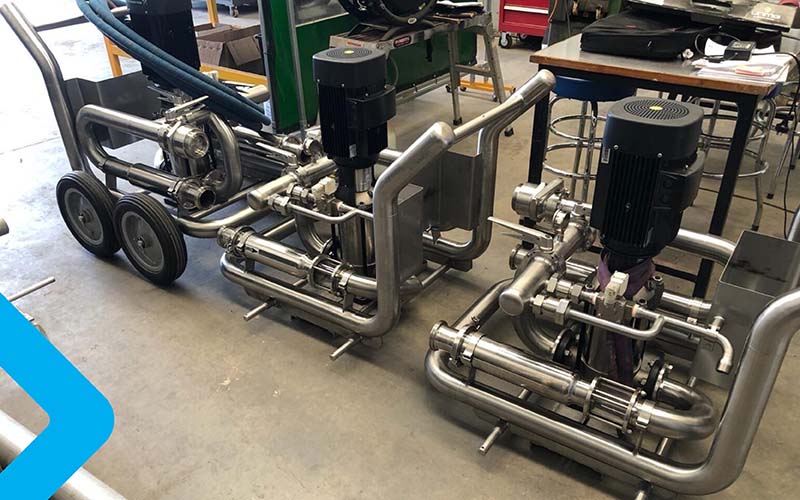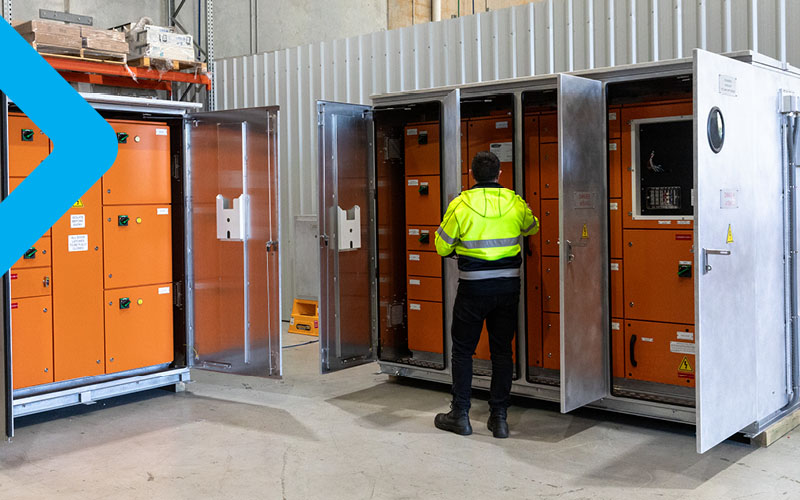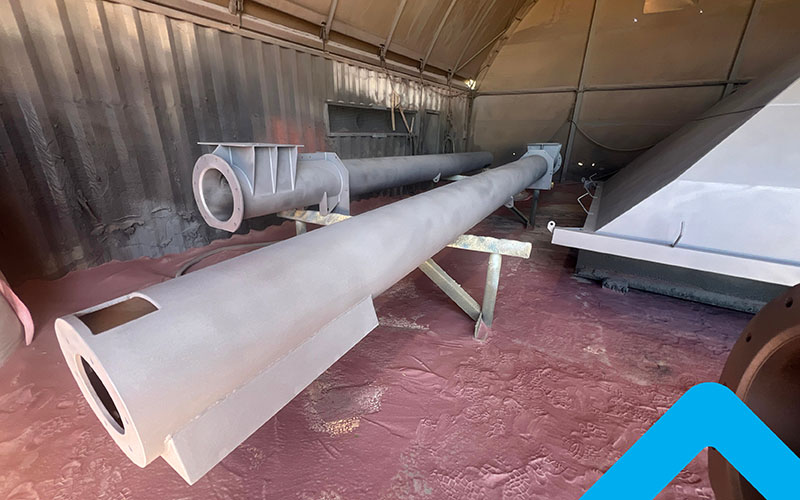Understanding Steel Fabrication
From the towering skyscrapers shaping our cities to the vast mining infrastructure powering Western Australia’s economy, steel plays a foundational role in modern construction and industry. But have you ever wondered how raw steel transforms into these critical structures? The answer lies in steel fabrication.
Steel fabrication is the process of cutting, shaping, assembling, and finishing steel components to create frameworks, supports, and machinery used in buildings, plants, and infrastructure projects. It’s a complex, highly skilled craft that combines engineering, technical expertise, and precision to ensure each steel piece fits perfectly and performs reliably.
But steel fabrication isn’t just about welding steel together. It requires meticulous planning, adherence to strict safety and quality standards, and coordination across multiple trades to deliver durable, high-quality outcomes. This guide breaks down the intricacies of steel fabrication - from the detailed processes and diverse applications to the expert skills and machinery behind it and explains why local WA fabrication remains vital to industrial and infrastructure success.
Why Steel Fabrication Matters
Steel fabrication is the backbone of countless projects across Australia’s resource, industrial, and commercial sectors. Whether constructing a processing plant, installing conveyor systems, or building large-scale infrastructure, fabricated steel components provide the structural strength and precision needed for safety and longevity.
Choosing a reliable steel fabricator means your project benefits from:
- Structural integrity designed to stand up to harsh environments and heavy use
- Faster project delivery through controlled, offsite manufacturing
- Compliance with Australian standards and regulatory requirements
- Enhanced safety for workers and end users
What Steel Fabrication Involves
Steel fabrication is a multi-step process that transforms raw steel into finished products ready for installation. Each step demands accuracy and skilled workmanship to maintain the highest standards. The main stages include:
Material Selection and Preparation
Fabrication begins with selecting the right type of steel, based on project requirements such as strength, corrosion resistance, and environmental conditions. Once selected, steel plates, sheets, pipes, and beams are inspected and prepared for processing.
Cutting and Shaping
Steel components are cut to precise dimensions using advanced equipment such as plasma cutters, laser cutters, or water jets. Shaping techniques like bending, rolling, and punching give steel its required form and fit.
Welding and Assembly
Expert welders join the steel parts according to engineered designs, creating strong, seamless connections. Assembly may involve constructing large frames, subassemblies, or modular sections.
Surface Treatment and Finishing
Once assembled, steel components undergo surface treatments like galvanising, painting, or powder coating to protect against corrosion and extend service life.
Quality Control and Testing
Before leaving the fabrication yard, every piece undergoes rigorous inspection and testing. Non-destructive testing (NDT) methods such as ultrasonic or magnetic particle inspections check for weld integrity and structural soundness.
Transport and Installation
Finally, fabricated steel components are carefully loaded and transported to the project site. Many fabricators also provide installation crews to streamline on-site assembly and integration.
Overcoming Challenges in Steel Fabrication
Steel fabrication is a demanding process that requires balancing precision, safety, and efficiency. Fabricators must manage large and often heavy components while maintaining tight tolerances. The complexity increases with custom or high-specification projects, where every millimeter counts.
Additionally, environmental factors such as weather can affect on-site fabrication, making offsite manufacturing a preferred approach in many projects to maintain schedule and quality. Safety is always paramount, given the risks involved in handling heavy steel and operating welding equipment.
Skilled fabricators like Bluechip Industrial Services bring the expertise, equipment, and quality systems necessary to overcome these challenges and deliver consistent, reliable results.
Industries That Rely on Steel Fabrication
Steel fabrication underpins many sectors critical to Australia’s economy, including:
- Mining and Resources: Fabricated steel structures support conveyors, processing plants, and heavy equipment frames.
- Energy and Power: Substations, wind turbines, and transmission towers require precision steel fabrication.
- Infrastructure: Bridges, ports, and rail networks depend on fabricated steel for durability and load-bearing capacity.
- Manufacturing: Machinery frames, storage tanks, and structural supports are commonly fabricated steel products.
- Commercial Construction: Steel frameworks enable modern commercial buildings and warehouses with open, adaptable spaces.
Each sector has unique demands that require fabricators to deliver tailored solutions built for specific operational conditions.
Benefits of Working with Expert Fabricators
Choosing a professional steel fabricator offers clear advantages:
Faster Turnaround Times
Controlled fabrication yards enable work to proceed regardless of weather or site constraints. Offsite modularisation and preassembly reduce on-site labor and compress project timelines - often saving weeks or even months.
Improved Quality and Consistency
Fabrication in a controlled environment ensures tighter tolerances and superior weld quality. Regular quality inspections and adherence to Australian Standards help guarantee performance.
Enhanced Safety
Offsite fabrication reduces hazards on site by minimizing on-site welding and heavy lifting. Rigorous safety protocols in fabrication yards protect workers and maintain compliance with WHS regulations.
Compliance Confidence
Steel fabrication in Australia adheres strictly to national standards, supported by detailed Manufacturing Data Reports (MDRs) and Inspection and Test Plans (ITPs) that guarantee quality and regulatory compliance.
The Role of Technology in Modern Steel Fabrication
Advances in fabrication technology are revolutionising the industry. Computer Numerical Control (CNC) machines, laser cutters, and automated welding systems improve precision and efficiency. Digital design tools like CAD software enable exact modeling before fabrication begins, reducing errors and costly rework.
3D scanning and digital twin technology allow fabricators to create virtual replicas of components, improving fit and assembly on site. At Bluechip, investing in cutting-edge machinery and software enhances our capacity to deliver complex projects on time and to specification.
Local Fabrication and End-to-End Delivery
Many Western Australian projects benefit from working with local fabricators who understand the unique conditions and compliance requirements of the region. Local fabrication means quicker turnaround, reduced freight costs, and closer collaboration throughout the project.
Many local fabricators also provide integrated installation teams, streamlining the entire journey from workshop fabrication to on-site assembly. This integrated approach reduces risk, improves communication, and ensures a seamless transition from fabrication to final commissioning.
Why Steel Fabrication Remains Essential
Despite evolving construction methods and materials, steel fabrication remains indispensable. Its versatility, strength, and reliability make steel the preferred choice for heavy industrial and infrastructure projects. The ability to engineer custom solutions tailored to project demands continues to set steel fabrication apart.
As Australia’s industrial landscape grows more complex, investing in skilled steel fabrication expertise ensures projects are completed safely, efficiently, and to the highest standards.
Elevate Your Project with Professional Steel Fabrication Expertise
Steel fabrication is a sophisticated process that plays a crucial role in building and maintaining Australia’s industrial and commercial infrastructure. From raw steel to finished components, expert fabrication combines engineering, craftsmanship, and quality assurance to deliver safe, durable, and compliant solutions.
Whether you’re planning a new mining facility, upgrading a processing plant, or constructing critical infrastructure, partnering with an experienced steel fabricator like Bluechip Industrial Services ensures your project benefits from local knowledge, advanced technology, and proven delivery capabilities.
If you want to learn more about how professional steel fabrication can add value to your next project, get in touch with Bluechip Industrial Services today.
_Line.svg)



























